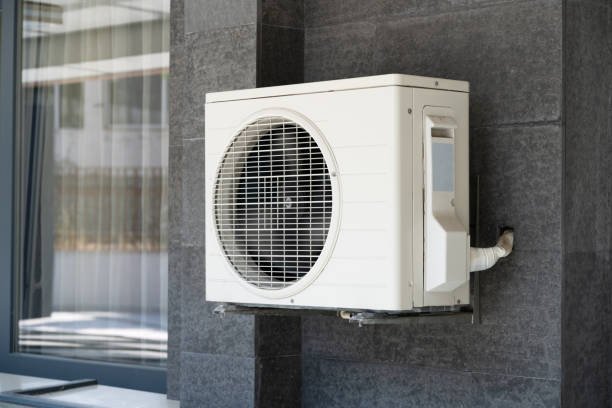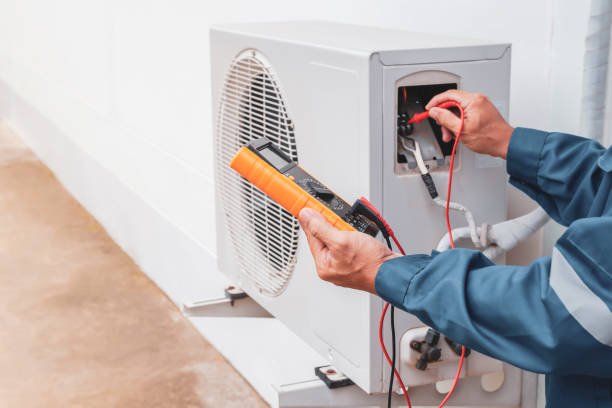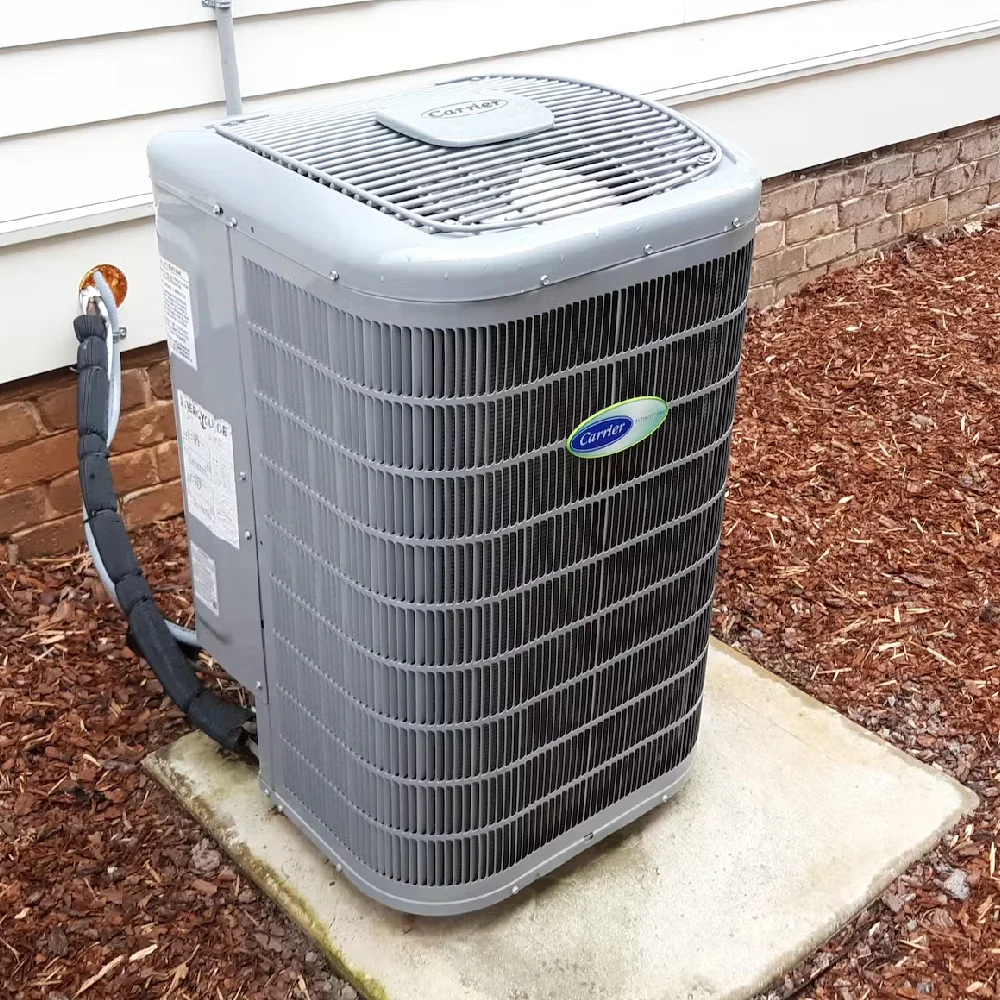Introduction
Navigating the world of HVAC (Heating, Ventilation, and Air Conditioning) can feel like wandering through a maze. With countless options for repairs and replacements, homeowners often find themselves at a crossroads when their systems start showing signs of wear. That's where the $5000 Rule comes in—a straightforward guideline to aid you in making informed decisions regarding your HVAC system.

In this comprehensive article, we will delve deep into the $5000 Rule for HVAC, exploring its intricacies and offering practical advice on whether to repair your existing system or invest in a new one. By the end of this guide, you'll have a clearer understanding of how to make smart choices that save both money and headaches down the line.
The $5000 Rule for HVAC: A Simple Guide to Making Smart Repair or Replacement Decisions
So, what exactly is the $5000 Rule? In essence, it serves as a benchmark for evaluating whether it's more cost-effective to repair an aging HVAC unit or replace it altogether. The crux of the rule is simple: if the cost of repairs exceeds 50% of the replacement cost (which is typically around $5,000), then replacing the unit might be your best bet.
Understanding Your HVAC System
Components of an HVAC System
Before diving into decision-making strategies, it’s vital to understand what constitutes an HVAC system:
- Heating Unit: This could be a furnace or heat pump responsible for warming your home. Cooling Unit: Central air conditioning units or ductless mini-split systems fall under this category. Ventilation: This involves airflow management through ductwork. Thermostat: The control center for setting desired temperatures.
How Long Do HVAC Systems Last?
Most heating and cooling systems have specific lifespans:
- Furnaces: 15-30 years Air Conditioners: 12-15 years Heat Pumps: 10-15 years
Knowing these timelines can help you evaluate whether it's time for an upgrade.
Signs You Need AC Repair
Inefficient Cooling
If your air conditioning unit isn’t cooling effectively, it might signal a need for repairs. Possible causes include:
- Low refrigerant levels Dirty coils
Unusual Noises
Strange sounds like banging or hissing can indicate mechanical issues within your AC unit.
Frequent Cycling
If your system turns on and off frequently without reaching set temperatures, it may need servicing.
When Should You Consider Replacement?
Age Matters
If your system is over ten years old and requires frequent repairs, consider replacement.
Rising Energy Bills
A sudden spike in energy costs can indicate that your unit is working harder than necessary—often due to inefficiencies associated with older models.
The Emotional Aspect of Decision-Making
Deciding whether to repair or replace your HVAC system isn’t just about numbers; it also involves emotional considerations. Homeowners often have attachments to their systems and may hesitate to let go even when data suggests it's time for an upgrade.
Financial Implications of Repairs vs. Replacements
| Factor | Repairs | Replacement | |----------------------|-----------------------------|-----------------------------| | Initial Cost | Usually lower | Generally higher | | Long-term Costs | Can accumulate | New warranties available | | Energy Efficiency | May not improve | Typically much better | | Comfort Level | Might remain limited | Improved overall comfort |

Breaking Down Repair Costs
To grasp when repairs become unfeasible financially, let’s break down common repair costs:
Thermostat replacement: $100-$300 Compressor repair: $150-$600 Coil cleaning: $75-$300Keep track of these estimates as they can help determine if you're nearing that pivotal threshold dictated by the $5000 Rule.
The Role of Professional Inspections
Hiring a certified technician can provide insights into your system's condition. Many companies offer free inspections which can help gauge whether immediate repairs are necessary or if you're better off looking into replacements.
Financing Options for New Systems
Should you decide on replacement but are worried about upfront costs? Several financing options exist:
Home equity loans Credit cards with rewards programs Manufacturer financing plansIt's wise to shop around and compare offers before making any commitments.
DIY vs Professional Help in Repairs
While some minor repairs might be tackled independently—like changing filters or cleaning ducts—more complex issues should always be left to professionals to ensure safety and efficiency.
Common Myths About HVAC Systems Debunked
Myth #1: All Repairs Are Expensive
Not air conditioner service Las Cruces all repairs will break the bank; many are quite affordable if addressed promptly.
Myth #2: Older Units Are Always Inefficient
Many older models still function well if properly maintained—don’t write them off immediately!
Environmental Considerations When Replacing Your System
Choosing energy-efficient units can significantly reduce your carbon footprint while saving money on energy bills over time.
Conclusion on The $5000 Rule for HVAC Decisions
In conclusion, understanding the $5000 Rule for HVAC provides homeowners with invaluable guidance when faced with repair versus replacement dilemmas. By weighing factors such as age, efficiency, repair costs, and emotional ties to existing units against potential long-term savings from newer models, you’ll be well-equipped to make informed decisions that suit both your budget and comfort needs.
Frequently Asked Questions (FAQs)
1. What does the $5000 rule entail?
The rule suggests that if repair costs exceed 50% of a new unit's price (typically around $5,000), it’s wise to consider replacing rather than repairing.
2. How often should I service my AC?
It’s recommended to service your air conditioning unit at least once a year before summer begins to ensure optimal performance.
3. What are some signs my AC needs immediate attention?
Look out for unusual noises, inefficient cooling, or frequent cycling as signs that professional assistance may be needed quickly.
4. Can I finance my new HVAC system?
Yes! Many companies offer financing options including loans and credit plans tailored specifically for home improvement projects like installing new HVAC systems.
5. Is DIY maintenance safe?
While minor tasks like changing filters are generally safe for homeowners, complex issues should always be handled by certified professionals to avoid accidents or further damage.
6. How do I choose between different brands?
Research various brands’ reliability ratings along with customer reviews before making a decision; professional recommendations also help!

With this guide in hand, you're now prepared not only to navigate potential pitfalls but also seize opportunities that lead toward enhanced comfort—and savings—in your home environment!